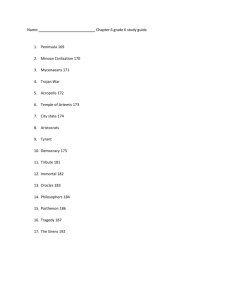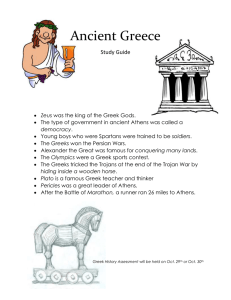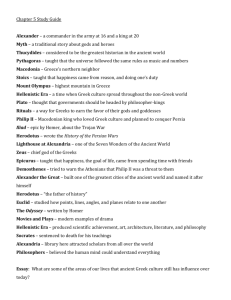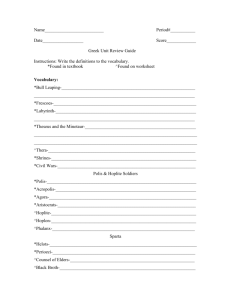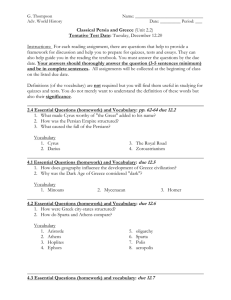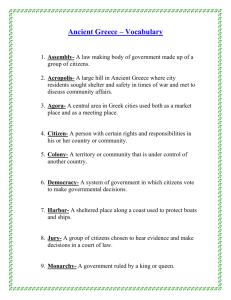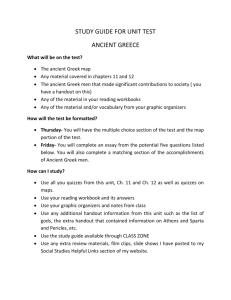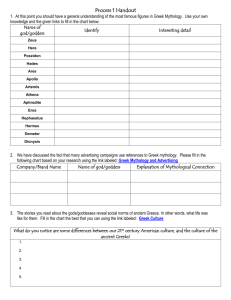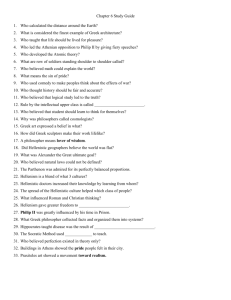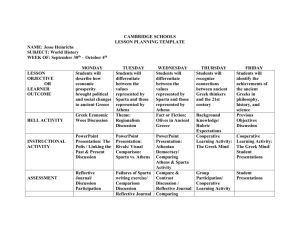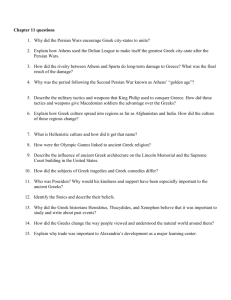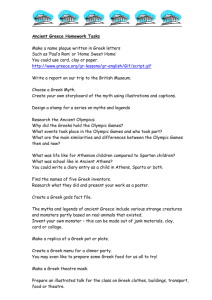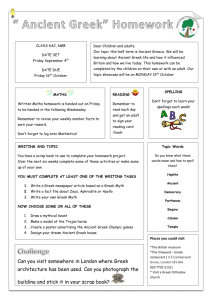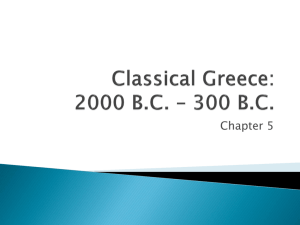Unit 2 Content Vocabulary - Greece epic poem a long poem, such
advertisement
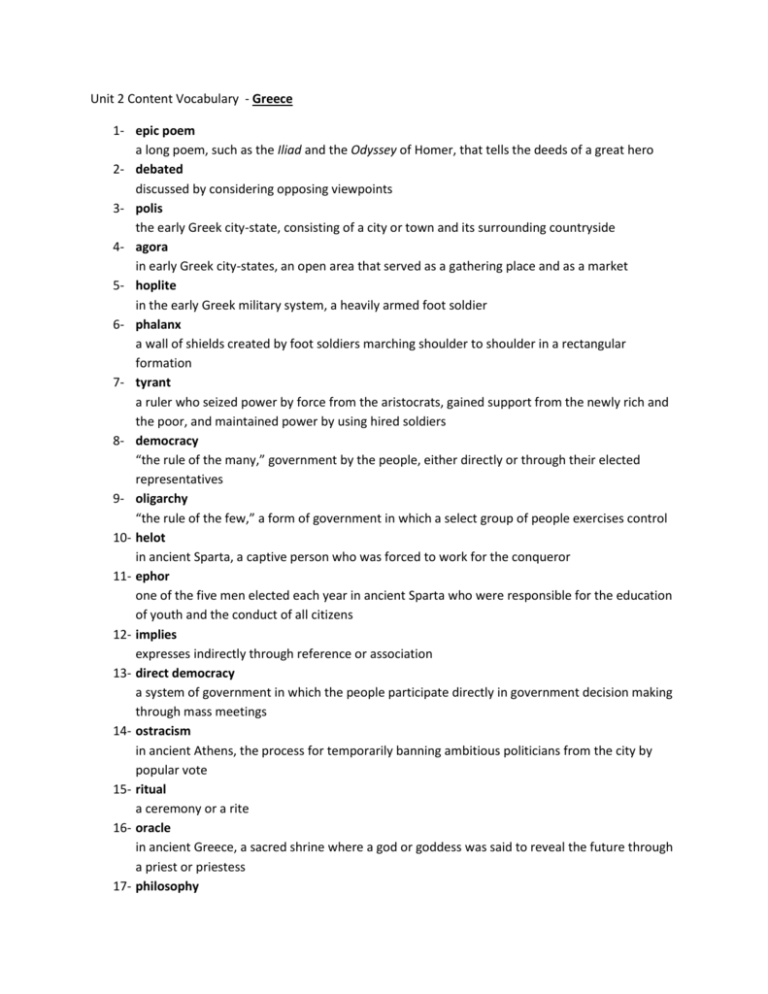
Unit 2 Content Vocabulary - Greece 1- epic poem a long poem, such as the Iliad and the Odyssey of Homer, that tells the deeds of a great hero 2- debated discussed by considering opposing viewpoints 3- polis the early Greek city-state, consisting of a city or town and its surrounding countryside 4- agora in early Greek city-states, an open area that served as a gathering place and as a market 5- hoplite in the early Greek military system, a heavily armed foot soldier 6- phalanx a wall of shields created by foot soldiers marching shoulder to shoulder in a rectangular formation 7- tyrant a ruler who seized power by force from the aristocrats, gained support from the newly rich and the poor, and maintained power by using hired soldiers 8- democracy “the rule of the many,” government by the people, either directly or through their elected representatives 9- oligarchy “the rule of the few,” a form of government in which a select group of people exercises control 10- helot in ancient Sparta, a captive person who was forced to work for the conqueror 11- ephor one of the five men elected each year in ancient Sparta who were responsible for the education of youth and the conduct of all citizens 12- implies expresses indirectly through reference or association 13- direct democracy a system of government in which the people participate directly in government decision making through mass meetings 14- ostracism in ancient Athens, the process for temporarily banning ambitious politicians from the city by popular vote 15- ritual a ceremony or a rite 16- oracle in ancient Greece, a sacred shrine where a god or goddess was said to reveal the future through a priest or priestess 17- philosophy 18- 1920- 21- 22- an organized system of thought, from the Greek for “love of wisdom” Socratic method the method of teaching used by the Greek philosopher Socrates that employs a question-andanswer format to lead pupils to see things for themselves by using their own reason ethics moral principles; generally recognized rules of conduct Hellenistic Era the age of Alexander the Great; period when the Greek language and ideas were carried to the non-Greek world Stoicism a school of thought developed by the teacher Zeno in Hellenistic Athens; it says that happiness can be achieved only when people gain inner peace by living in harmony with the will of God and that people should bear whatever life offers subsidizing aiding or promoting with public money
